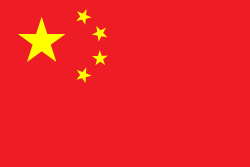You can help expand this article with text translated from the corresponding article in Chinese. (April 2019)Click [show] for important translation instructions.
|
| Secretary-General of the Standing Committee of the National People's Congress | |
|---|---|
| 全国人民代表大会常务委员会秘书长 | |
 | |
 | |
| General Office of the Standing Committee of the National People's Congress | |
| Type | Presiding officer |
| Status | Provincial and ministerial-level official |
| Member of | Council of Chairpersons |
| Nominator | Presidium of the National People's Congress |
| Appointer | National People's Congress |
| Term length | 5 years, renewable once consecutively |
| Constituting instrument | Constitution of China |
| Formation | 27 September 1954 |
| First holder | Peng Zhen |
| Deputy | Deputy Secretary-General |
 |
|---|
The Secretary-General of the Standing Committee of the National People's Congress is a deputy to the chairman of the Standing Committee of the National People's Congress, and is responsible for assisting the chairman in his work. The secretary-general is responsible for overseeing the operations of the NPCSC General Office.
Contents
The secretary-general is formally nominated by the Presidium of the NPC during a session and approved by the delegations of the NPC, although in practice the candidate is chosen within the ruling Chinese Communist Party (CCP). [1] The Chairman, Vice Chairpersons, and the Secretary-General of the NPCSC collectively constitute the Council of Chairpersons. [2] The secretary-general is responsible for the administrative operations of the General Office of the Standing Committee. [3] The post is generally held concurrently by one of the vice chairpersons, and is assisted by one or more Deputy Secretaries-General.
















